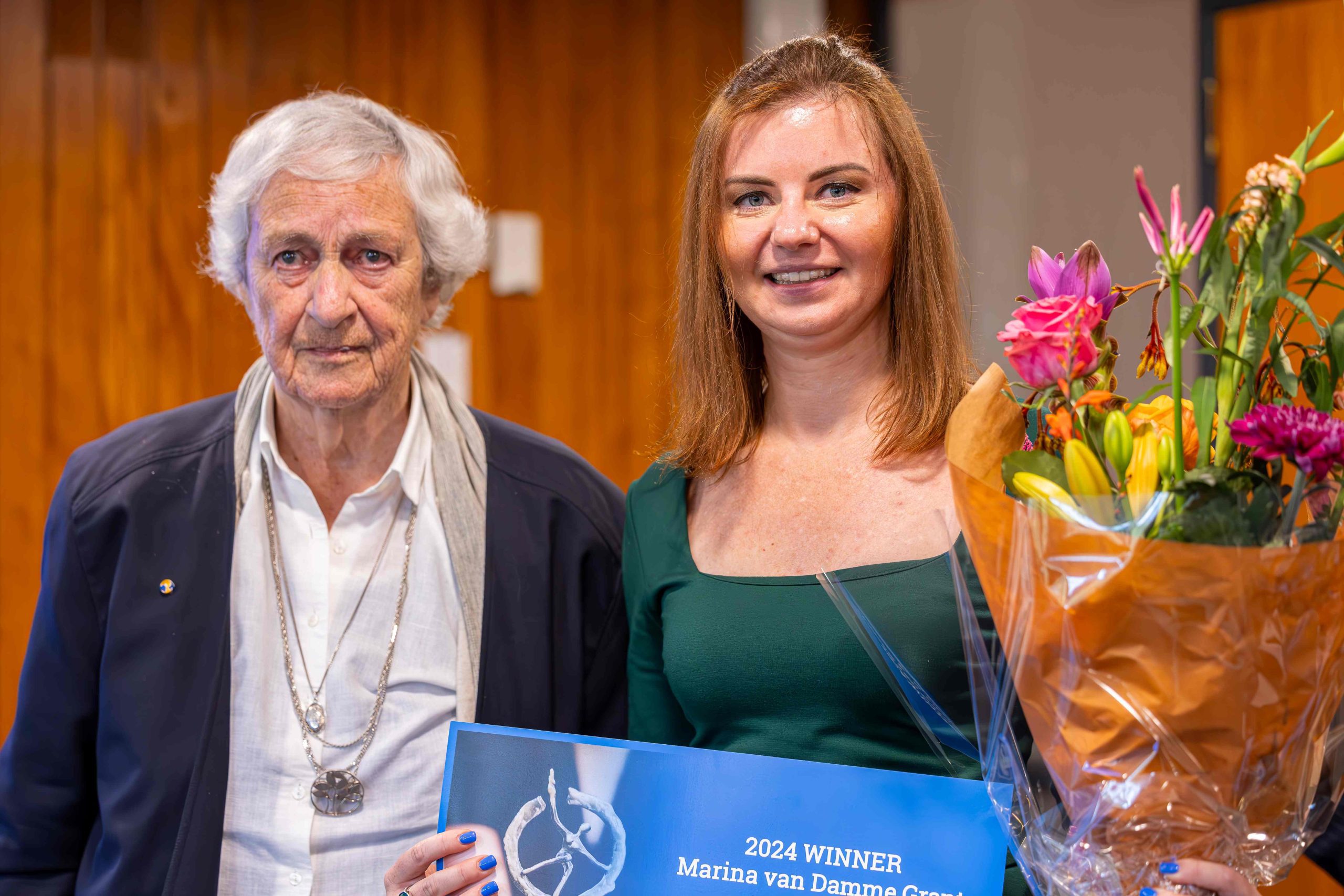Natalia Vtyurina has won the Marina van Dammebeurs 2024, a grant that is awarded every year to a female TU Delft alumnus. Vtyurina received the grant on Thursday during a celebratory gathering organised by the Delft University Fund.
Marina van Damme and Natalia Vtyurina during the presentation of the Marina van Damme Grant 2024. (Photo: Robèrt Kroonen)
Natalia Vtyurina, the TU Delft alumna who was awarded the Marina van Dammebeurs by the Delft University Fund on Thursday, won EUR 9,000. The winner can use that money to further her development. The second prize went to Marjolijn Heslinga, who will receive EUR 2,500. The third prize, of EUR 1,000, is for Jessica Sun.
The jury was impressed by the achievements of all three, said the Chair, but they could only choose one winner. “The innovative nature of the project, and our belief that it has the potential to make a long-term impact on society, led us to choose Natalia’s proposal.”
Vtyurina, who is from Russia, graduated in Moscow in 2011 and moved to the Netherlands to obtain her doctorate in Biophysics from TU Delft. In 2016 she had talked to Delta about how her father started working on the wonders of DNA when he was very young and that she had gone on to study this herself. She is currently working at Brystol Myers Squibb, a biopharmaceutical company. She is working on building of the first ultra-modern digital cell therapy facility in Europe in the Bio Science Park in Leiden.
Building on ideas
Vtyurina is planning to use the grant to move from industry to working in government and politics, she says on The Delft University Fund website. Vtyurina : “I am convinced that this scholarship will help me realise my ideas to make a crucial turn towards a career into government and possibly later into political lobbying.”
Vtyurina says the latter is important. “I am convinced that if higher educated women with STEM (science, technology, engineering and mathematics) backgrounds enter the political scene, they can set an example to others and take this to the next level towards a more tolerant, balanced soft society.”
The Marina van Damme Grant is awarded every year at the three Technical Universities of Delft, Eindhoven and Twente. The grant aims to enable young female engineers to ‘further develop’ and to ‘give their personal careers a boost’. The winners become part of the Marina van Damme Network and meet up together in the garden of Marina van Damme, the grant’s namesake, every year.
Over 90
Van Damme created the grant in 2003. She graduated in Chemical Technology at TU Delft in 1953 and earned her doctorate 12 years later as the first female engineer at the then Technical University of Applied Sciences Twente. Van Damme, now well over 90 years old, attended the award ceremony on Thursday.
Last year the grant was awarded to two winners and one runner-up who received a double grant. The grant had not been awarded the two previous years because of the low quality of the submissions.



Comments are closed.